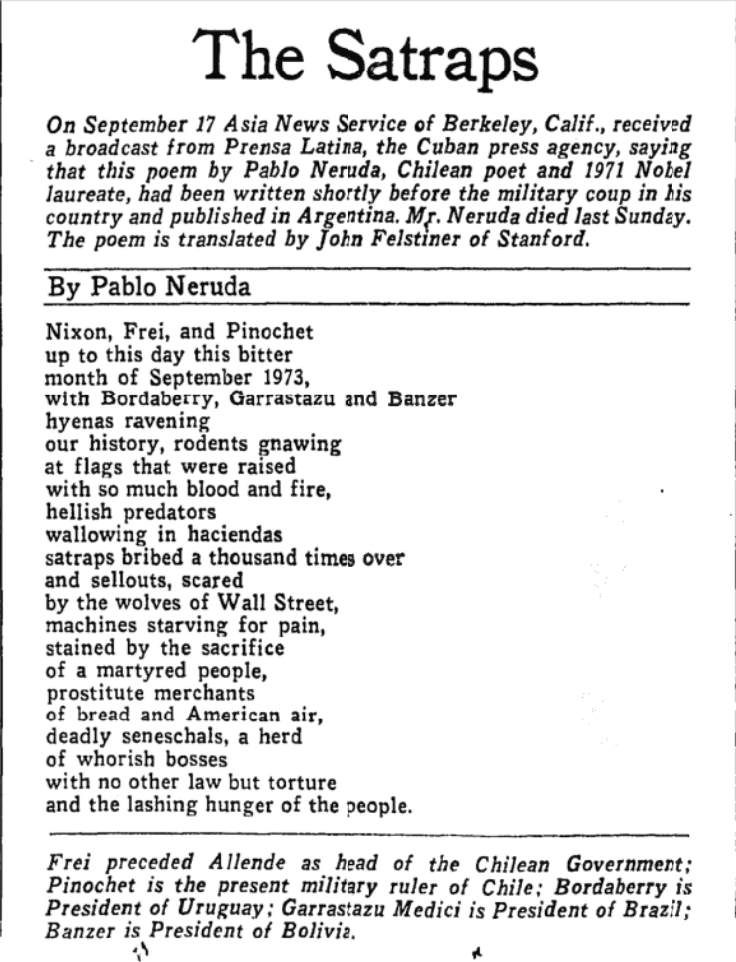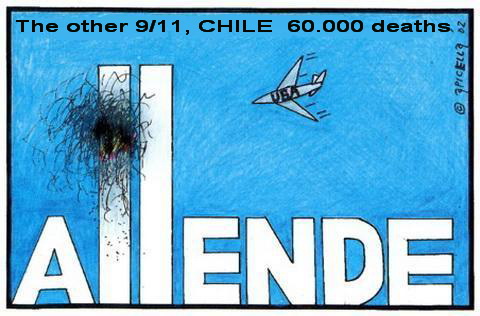Declassifying the Communications

Neruda, Pablo, 'The Satraps,' The New York Times, 1973.
Immediately following the coup, Pinochet swiftly eliminated foreign and domestic media that opposed the military junta’s politics, controlling communication to the world on the horrors in Chile. In the following 17 years, Pinochet reversed much of Allende’s legislation, persecuted all political dissent, rewrote Chile’s constitution to guarantee himself more power, and led an authoritarian regime that oppressed the Chilean people. As the Pinochet regime's brutality became more public, the US began to recant their support while downplaying their role in manufacturing the political climate that led to the coup.

'Chile's 9/11,' The Alantic, 2002.
Ultimately Pinochet was arrested in London in 1998 for human right violations leading citizens to lobby for declassification of the CIA documents on Pinochet’s state-sponsored violence. Despite resistance from the CIA, President Clinton’s administration authorized the release of 24,000 documents dating back to 1969. In doing so, the US government's involvement in installing Pinochet, who was later found guilty of human rights violations, was made public. This declassification was one of the first large-scale, public releases of CIA documents and it led future presidents to declassify documents in aid of foreign policy. The declassified documents gave both Chileans and Americans insight into the communications between their two countries that resulted in the oppression of an entire nation.
Personal Interview with General Tim Brown, J2 Intelligence for US Southern Command.